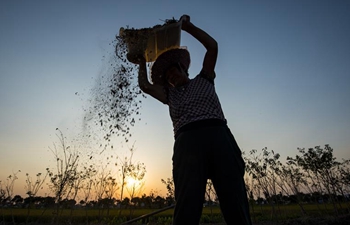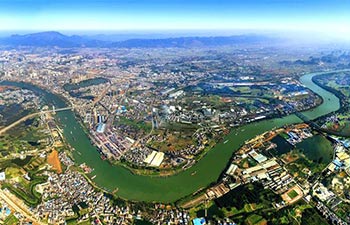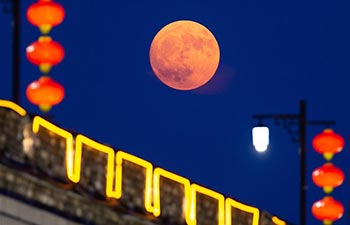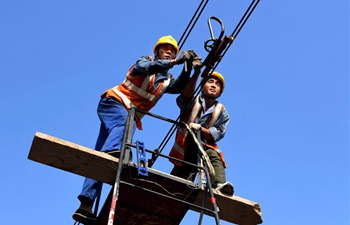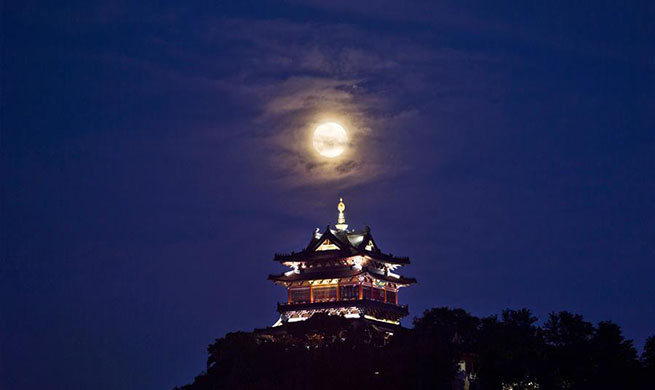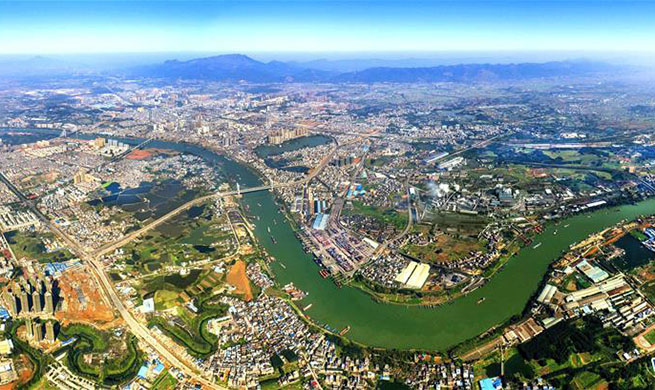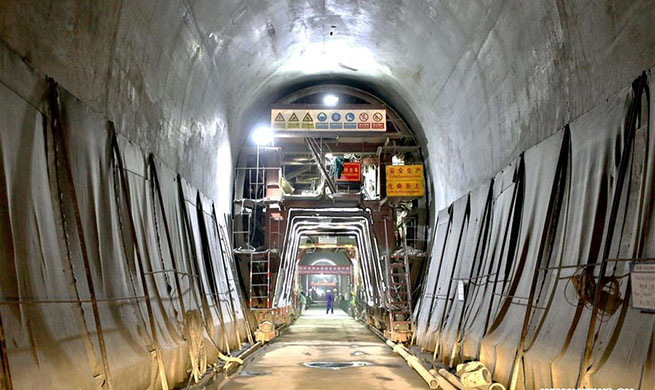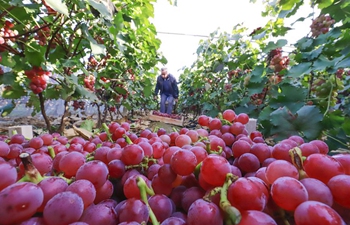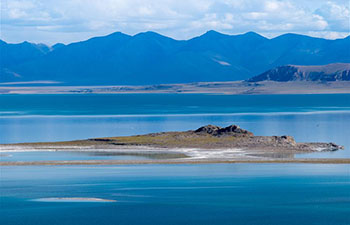NEW DELHI, Sept. 25 (Xinhua) -- Hit hard by steep hike in fuel prices, people in urban India are trying all cost-effective measures to tackle commuting. The most popular among them has been to shun the use of private cars and resort to public transport or carpooling.
Petrol and diesel prices have been on a steady hike since the past few months.
Despite protests from several counters, petrol have crossed 80 Indian rupees (1.10 U.S. dollars) per liter in most Indian cities, including the national capital, while it has crossed 90 Indian rupees in financial capital Mumbai, as the dip in the value of rupee and rise in international crude prices continue to push rates across the country to all-time high.
India is the third largest importer of crude oil and rising international oil prices are inflating domestic transport fuel costs in a strong demand environment.
Brent, the benchmark for more than half the world's oil, climbed to 80 U.S. dollars per barrel from 71 U.S. dollars in the past five weeks, and the Indian rupee lost ground against the dollar by 5-6 percent during the same period, resulting in expensive crude imports.
This rise has flipped people who are now scrambling and cutting household expenses to adjust with the steep fuel prices.
"I have started taking car pool since last month when the prices started to rise. With my salary and two children to educate, it's difficult to manage the budget. Though carpool can be a time-consuming exercise, it is helping us manage our monthly expenses as most of the money we make for our survival was going into refuelling the car," says Gargi Chaudhury, an IT executive who travels from Delhi to her office in nearby Gurgaon daily.
In a recent survey conducted by citizens' forum Local Circles, participants from five metropolitan cities responded that the fuel rise has broken their backs deeply. The survey asked respondents how their household condition has been in the past 12 months with respect to earnings and expenses.
While 22 percent said earnings have risen less than the expenses, 38 percent said that earnings have been flat, but expenses have risen significantly. Only 16 percent said earnings have risen significantly more than the expenses, and 24 percent said earnings have risen slightly more than the expenses.
People complained cutting down on leisure activities, and discretionary spending like eating out, travel, movies and shopping, which is specifically dampening given that the festival season is around the corner.
"My wife used to spend almost 10,000 Indian rupees (150 U.S. dollars) per month on fuel but with the price hike, we could not afford to shell out more than we were already doing. We both have stopped using our cars and instead using Metro rail or pooling with colleagues. The price rise has really burned a hole in our pockets. We are also thinking of abandoning our cars altogether to travel on bike to office and use bicycle for daily-use purposes," says Akash Singh, a Delhi-based private sector bank executive.
Students like Shweta Bhanot have taken to the Metro. "My parents bought me a car recently to go to college. But in my pocket money, I cannot afford the fuel. In fact, the Metro is also expensive for me," says the Delhi University student.
Suresh Agarwal, a car spare parts businessman, says he was forced to let his driver, Prakash Singh, go due to the price hike. "A full tank used to cost around 2,200 Indian rupees (30 U.S. dollars) when I bought my car a year-and-a-half ago, but now it costs almost 2,800 Indian rupees (40 U.S. dollars)," he says.
On the other hand, his driver, Pradip Singh, who is bearing the brunt of the rising prices in this case, says that he will have to return to his native state of Bihar in eastern India if he does not get another job soon. "It's all due to the daily fuel price hike," he says.
Perhaps the one set of group celebrating is the environmentalists who believe the incessant ascent in fuel prices will make people aware of pollution and climate change.
"We had been promoting carpool for so many years, but the use of private cars had just been increasing since the past decade. I know the rising prices are hurting people. But I am hoping that when the air pollution improves and people, especially in Delhi, breathe clean air, they will realize the harmful effects of pollution," says Ratna Shekhar, an environment activist.
